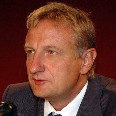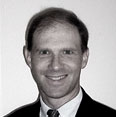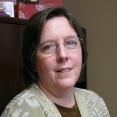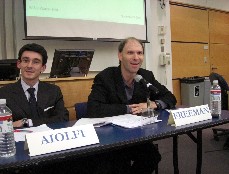Human Capital
 Monday, November 23, 2009 at 7:00PM
Monday, November 23, 2009 at 7:00PM A 4-lecture series presenting a new vision in economy beyond market, models and ethics
Work and the person:toward a new education
with Bernard SCHOLZ, President of Compagnia delle Opere (Companionship of Works)
Thursday, October 29, 2009
Human capital and the role of trust
with Prof. Seth FREEMAN, Clinical Assistant Professor, NYU Stern School of Business, Adjunct Professor, Columbia Business School
Monday, November 9, 2009
Human capital in Pope Benedict XVI's lastest encyclical Love in Truth (Caritas in Veritate)
with Dr. Kimberly SHANKMAN, Dean of Benedictine College, Atchinson, KS
Monday, November 16, 2009
Human capital at work: case studies
with Anujeet SAREEN, Portfolio Manager in a leading US investment firm
Monday, November 23, 2009
Presented by Crossroads Cultural Center and the Christian Business Fellowship at Columbia University
As the title suggests, the aim of this series is to look at the many ways in which the ``human factor" affects the economic sphere. To some extent, there is a tendency in our culture to think of the economy as a fairly impersonal process that can be understood in "scientific" terms. Accordingly, public policy often faces economic questions like engineering problems, to be solved using appropriate fiscal, monetary or regulatory instruments. Similarly, economic debate in the academia and in the media focuses on topics such as the role of the market, or mathematical modeling, or even the need for ethical guidelines, but mostly in a manner that is fairly abstract and removed from concrete human experience.
In our opinion, all these approaches, while certainly useful, are not enough. Economic processes cannot be understood in separation from the reality of the people who work and produce. Ultimately, all economic systems reflect the desires, talents and skills of the people who participate in them. Human beings are not ants, and economic construction is not a mechanical process, but a truly human event which involves reason and freedom at every step. This is why we titled our lecture series "Human capital: a new vision in economy beyond market, models or ethics."
It is interesting how this reality has come up both in the recent Papal Encyclical and also in the work of this year's winners of the Nobel Prize in Economics. For instance, no advanced economy could operate without a complex network of human relationships based on trust and shared ethical values, or without a critical mass of people willing to risk entrepreneurial initiatives that to some extent go beyond their short term individual interest. In fact, all economic growth originates in one way or another from human desire, and not simply desire for individual enrichment, but above all desire to build, to humanize the world. Economics has a deep cultural dimension, which nowadays is often ignored.
This technocratic and mechanistic reduction can be seen also in the way the words in our title, "Human Capital," are often understood to mean simply an educated workforce, where in turn the word "educated" means little more than "trained." However, the true human capital of a society involves all the creativity and the aspirations of its members, the richness of its social networks (including family life), its traditions of workmanship and entrepreneurship.
The first event is titled "Work and the person: toward a new education." The speaker is a representative of a unique economic reality, entirely built on the concept that economic life finds its roots in the reality of the human person. Bernard Scholz is the President of Compagnia delle Opere (Companionship of Works), certainly one of the largest business networks in the world with a membership of over 35,000 businesses. Based in Milan, Italy, the Compagnia delle Opere is a striking example of a savvy business organization which at the same time recognizes that economic profit cannot be an end in itself but must be at the service of a larger human vocation and of a shared ideal.
In our second lecture, Professor Seth Freeman will focus on the role of trust in economic relationships. Professor Freeman dedicated many years to studying this aspect of human behavior which received a lot of attention from the 2009 Nobel prize winners in economy.
At our third meeting, Dr. Kimberly Shankman, Dean of the Benedictine College in Atchison, Kansas, will present those issues of the latest Papal encyclical, Caritas in Veritate, which more directly deal with economy and finance, i.e., those aspects which are the least known or the most easily misunderstood by the larger public.
Finally, our last lecture with portfolio manager, Mr. Anujeet Sareen, will be dedicated to showing some case studies which will help to illustrate how, when human capital is taken into due account, the economic and financial results of businesses are surprisingly improved.
About this Event
Dates:Thursday, October 29
Monday, November 9
Monday, November 16
Monday, November 23
Time: 7 - 8:30 pm
Location: Columbia University, W & J Warren Hall, Room 207
115th Street & Amsterdam Avenue, New York
About the Speakers
 Bernard Scholz
Bernard Scholz President of Compagnia delle Opere (Companionship of Works)
 Prof. Seth Freeman
Prof. Seth Freeman Clinical Assistant Professor, NYU Stern School of Business, Adjunct Professor, Columbia Business School
 Dr. Kimberly Shankman
Dr. Kimberly Shankman Dean of Benedictine College, Atchison, KS
Invitation
Download the Invitation hereSlides
To learn more about The Companionship of Works: download the presentation here.download the brochure here.
Transcript
October 29, 2009: Read the Transcript hereNovember 9, 2009: Read the Transcript here
November 16, 2009: Read the Transcript here
November 23, 2009: Read the Transcript here
ALL 4 LECTURES: Read the Transcript here
Photos - click on image below



Reader Comments